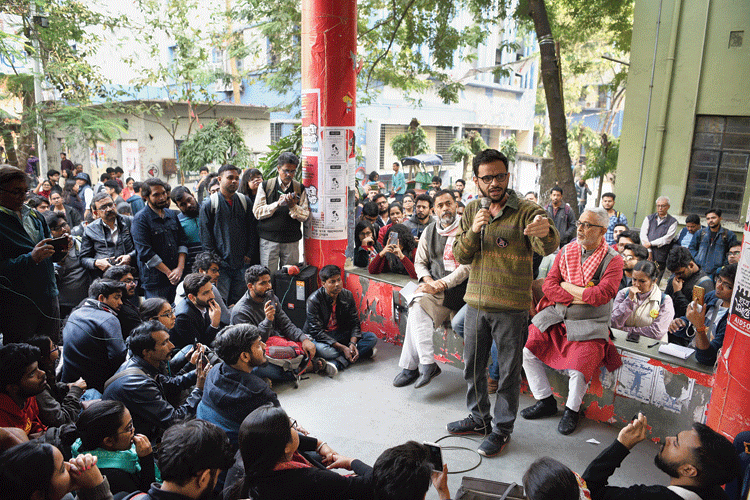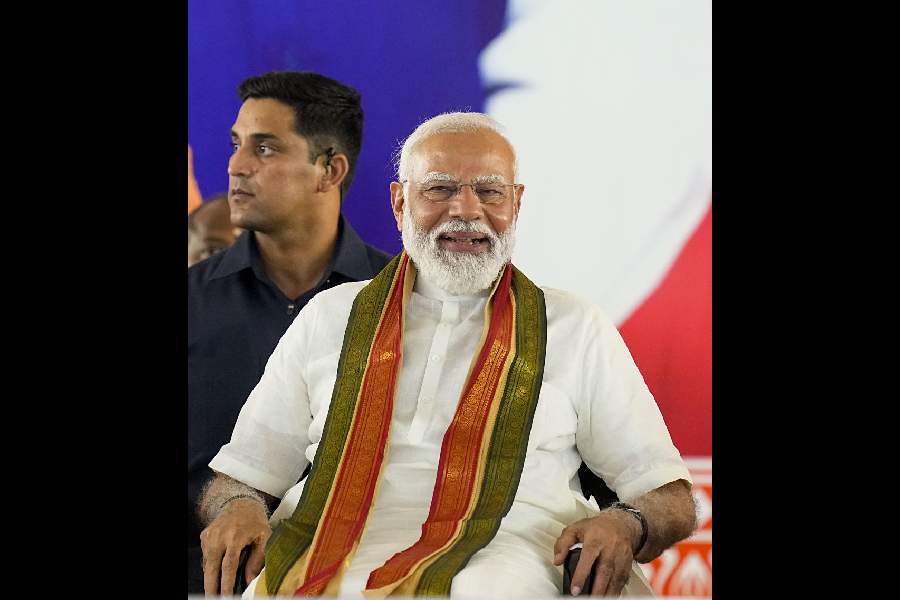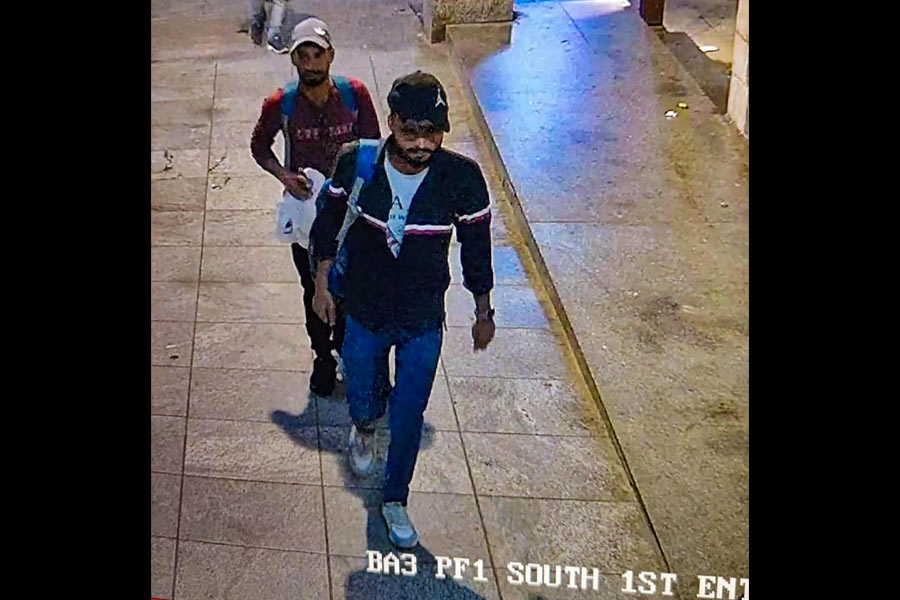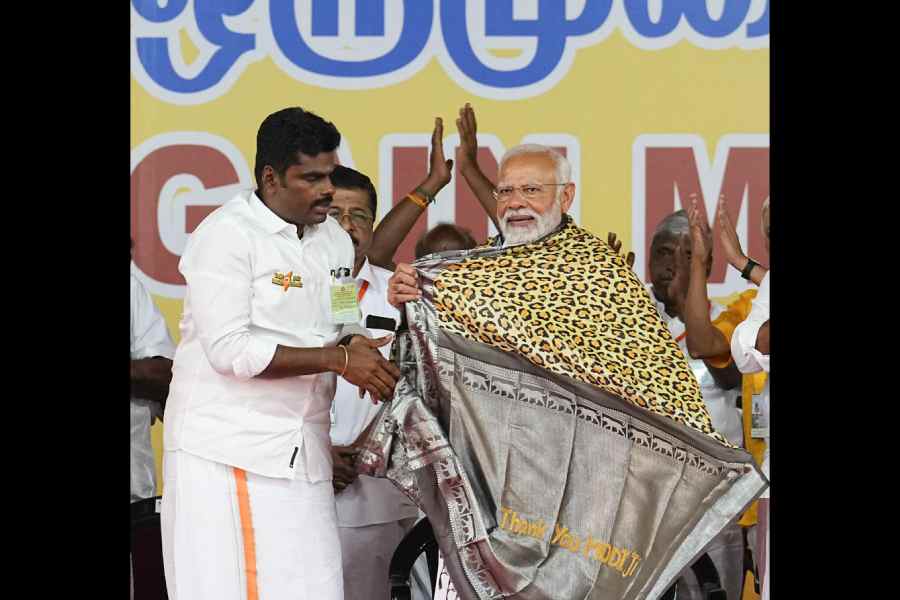
(From left) Khurshid Parvin, a student from Kashmir at JU; Debapriya Shome, a student of political science; Subhranshu Sekhar Mukhopadhyay, a financial analyst; and Debanjan Sengupta, a JU student, at the sesssion
The Narendra Modi government has “lost the battle over young minds”, Umar Khalid, a civil rights activist and former Jawaharlal Nehru University student who was arrested on sedition charges in February 2016, said on Monday.
Speaking to students and teachers at Jadavpur University, Khalid said the government should have realised seeing campus protests across the country against the Citizenship (Amendment) Act and the National Register of Citizens over the past many weeks that students could not be brainwashed.
“The rulers of India have lost one battle: that is the battle over young minds. Now, after that, they can brand the young minds in whatever way they like. They can say that the young minds have been misled, they can call them anti-nationals or say they are part of the tukde-tukde gang or anything. Still, this battle the government of India has lost: that is the battle over universities,” Khalid told the gathering of several hundreds.
Metro asked him what was the biggest achievement of the students’ movement against the CAA since President Ram Nath Kovind had given his assent to the bill on December 12.
“The biggest achievement in the past month... is that the government has realised that students cannot be brainwashed. I see it like they came to bury us, but they did not know we were seeds,” said Khalid, who considers JU as one of the few campuses that have inspired protests across the country.
Khalid, who did his master’s, MPhil and PhD in history from JNU, recounted his days on the Delhi campus when they dared to raise azaadi slogans, for which he and a few others were booked.
Khalid had spent 25 days in custody before being released on bail. The case is pending.
Khalid seemed to be taking heart from the fact that such slogans are now being raised on campuses across the country, even the ones that have no history of campus politics.
“When azaadi slogans were first raised on the JNU campus, that was turned into the biggest sedition case of the country. That used to be the headline those days. Now, you get to hear these slogans on campuses such as ISI (Indian Statistical Institute), Delhi School of Economics and St Stephen’s, which have no tradition of campus politics. I think that shows that something has changed in India and the change is positive: the rulers of India cannot take India for granted,” said Khalid.
“The protest is only escalating across campuses. Now, what is their response? Let’s close down the universities. Let’s destroy the universities. We should not let them achieve success in their agenda.”
JU student Debanjan Sengupta asked the campus politics veteran whether there was a need to resort to violent resistance.
Sengupta raised the topic in the context of brutal attacks being unleashed on campuses by goons allegedly backed by the ABVP, the students’ wing of the RSS.
“Broadly, as far as the issue of violence or non-violence is concerned, violence suits those who want to create a conflict. Just see the language of Delhi police in its recent press conference. See the language of JNU VC…. But what can be the response to this? Should we be smashing their heads? This cannot be the response. The response would be to forge unity among the campuses and beyond the campuses so that all progressive voices can be put together,” said Khalid.
Actor director Suman Mukhopadhyay, who was present at the programme, said: “It was good to see that a section of artistes are joining the movement, overcoming fear”.
Swaraj India leader Yogendra Yadav, too, interacted with the students. “The protests against CAA and NRC have become a movement and the credit for this goes to students,” said Yadav.
The gathering drew people from different walks of life.
Subhranshu Sekhar Mukhopadhyay, a financial analyst in Salt Lake Sector V, took half-a-day’s break from work to listen to Khalid.
“I am worried over the financial implications in the event of implementation of NRC. It had involved a huge cost in Assam. Just think what massive cost it would be once implemented countrywide. Given the country’s economic condition, where will the money come from? Why not junk it for simple economic reasons?” said Mukhopadhyay.










